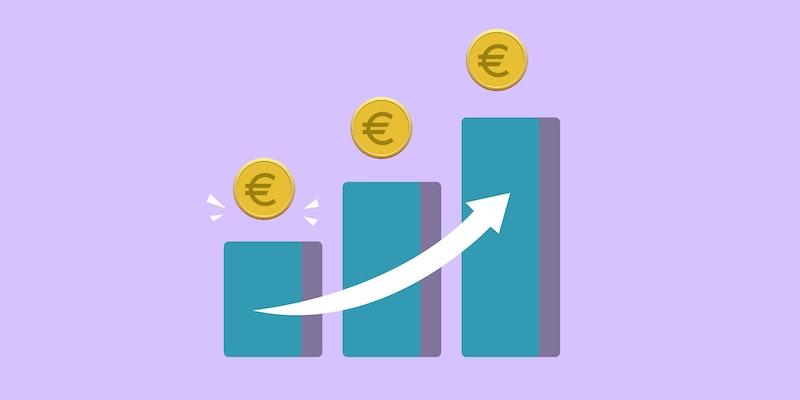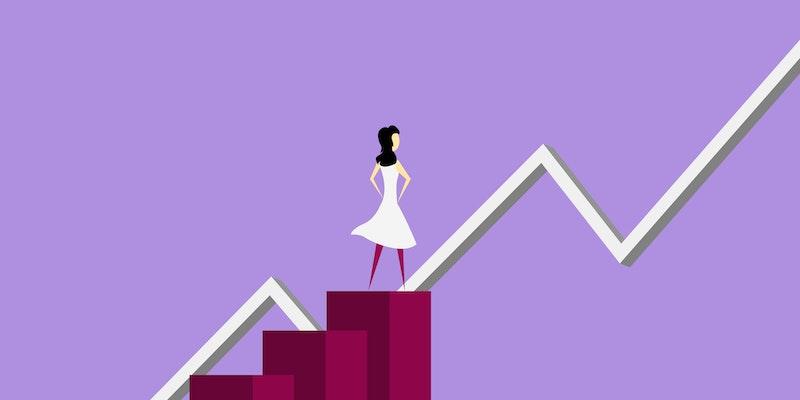The Effect of Inflation on Your Saved Mone
Oct 22, 2023 By Susan Kelly
Finance Statistics Inflation is the gradual rise in prices for goods and services. Keeping an eye on inflation news, you may have noticed that what was $10 a year ago now costs $10.50. As prices rise, your dollar loses value.
It's a simple idea with significant implications. The inflation rate determines how much more we may spend on groceries, rent, or coffee this year than last. Inflation reduces the value of each dollar. For families to budget accurately, inflation must be checked.
Looking back, we can see how inflation has left its mark, especially in everyday activities. For instance, consider watching a movie. In 2005, on average, a trip to the cinema cost about $6.41. Zooming ahead to 2019, that price rose to $9.16. And if we're up-to-date with our inflation news, by 2022, you'd be paying an average of $16.29 just for a movie ticket.
Such examples make the abstract notion of inflation tangible. Observing the current inflation rate can offer hints about future price trends. For many, these aren't just statistics; they impact weekend plans, family outings, and entertainment budgets. Being mindful and conducting a periodic inflation check helps make informed decisions about discretionary spending.
How Inflation Directly Hits Our Savings?
Let's break down how inflation directly hits our savings. Suppose you've diligently saved $100 in an account that rewards you with a 1% interest rate. A quick math check shows you'd have $101 by the year's end. Sound good? However, the twist. At 2% inflation, $100 would buy $102. You need to catch up despite that extra $1.
The Reality for Savers
The undeniable effects of inflation touch everyone, but for individuals, especially retirees, who heavily depend on their savings, it presents an uphill battle. As time progresses, these individuals notice their money's ability to afford the same goods and services wanes. For instance, in countries like the U.S., while the current inflation rate may seem manageable, specific sectors, such as healthcare, see prices surge faster than many other areas of the economy. This imbalance creates hurdles for those trying to balance their expenses in their sunset years.
An inflation check reveals that the money saved painstakingly over decades may not stretch as far as one would hope as every year passes. Many retirees discover that their budgets become tighter, forcing them to decide what to prioritize. It's crucial to keep tabs on the inflation news and stay informed to manage these challenges better.
Causes of Inflation
The economic landscape shows that inflation is driven by rising demand for goods and services. With more money in the market, consumers spend more, so sellers raise prices. It's not the only trigger. Unexpected external events can disrupt the supply chain and affect prices. A sudden cold snap can damage agricultural outputs, or rising raw material costs can force car manufacturers to raise prices.
Measuring Inflation's Impact
The Consumer Price Index is a crucial government indicator of inflation's economic impact. This index tracks rent, bus fares, and other consumer expenses. CPI snapshots help people understand how inflation is affecting their wallets. Critics of the CPI exist. Its comprehensiveness is disputed, and some believe the Producer Price Index (PPI) may be more accurate.
Inflation Trends in the U.S.
U.S. economics have been volatile. The nation's history showcases its struggles and successes, especially with inflation. After the 2008 financial crisis, fears escalated about the current inflation rate potentially reaching negative territory, which would spell deflation. This is a concerning scenario, as deflation can devastate an economy by discouraging spending and investment due to expectations of falling prices.
Adjustments for Social Security
Hardworking Americans look forward to Social Security benefits in retirement. As the cost of living rises, these benefits should too. The government recognizes this need and occasionally adjusts Social Security payments. The metric used to gauge these adjustments is the CPI.
Recent headlines in the inflation news circuit highlight that the adjustment rate for 2023 stands at a noteworthy 8.7%. This is the most substantial increment since 1981, signaling the government's attempt to match the current inflation rate. Some critics say more than this increase is needed. Healthcare costs, which the elderly use, are rising faster than inflation. Since it can affect retirees' quality of life, this discrepancy is growing and needs attention.
Strategies to Preserve Your Savings
Protecting your hard-earned savings from the eroding effects of inflation should be a top priority. Although every investment avenue comes with risks, tailored options are available to suit varying risk profiles. You can make financial decisions that match your goals and risk tolerance by being proactive and informed.
Treasury Inflation-Protected Securities (TIPS)
A noteworthy tool in the fight against inflation is TIPS. The unique feature of these securities is their ability to adjust interest payments based on the CPI. What's more, should you find yourself in an environment where prices are declining, and you purchased TIPS when they were initially issued, rest assured, you'd still receive your initial principal amount back.
Government I Bonds
Government I Bonds emerge as an attractive option for those looking to start small. They offer a blend of fixed and inflation-based interest rates, ensuring your savings grow while keeping pace with inflation.
Stocks
When you check historical data, stocks often offer returns that outpace inflation over the long term. There are alternatives for those wary of the ups and downs associated with individual stocks. Mutual and exchange-traded funds present opportunities to invest in a collection of stocks, usually at more affordable fees. These pooled investment vehicles can provide a level of diversification, reducing the risk tied to the performance of a single stock.

Precious Metals
Given the current inflation rate, many are expected to revisit traditional investment channels. Gold and silver, often highlighted in inflation news, have always been reliable shields against inflation. While the inflation check might be problematic for some assets, these precious metals often stand firm. Once, buying physical coins was the common practice, but today's savvy investors are presented with broader options. Precious metals ETFs, for instance, allow one to dive into these valuable metals without the complications of physical storage.

Susan Kelly Sep 05, 2022
Affect of Climate Change On Companies

Triston Martin May 24, 2023
Advantages of Online Banking

Triston Martin Oct 27, 2023
Getting a Head Start: Mortgage Prequalification Tool

Susan Kelly Jan 05, 2023
Why Employer Student Loan Repayment Is Important

Susan Kelly Apr 19, 2022
What Is The Free Budget Planner Worksheet?

Susan Kelly Oct 22, 2023